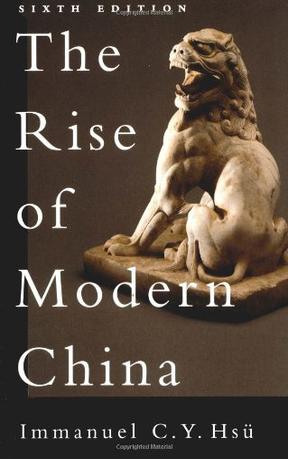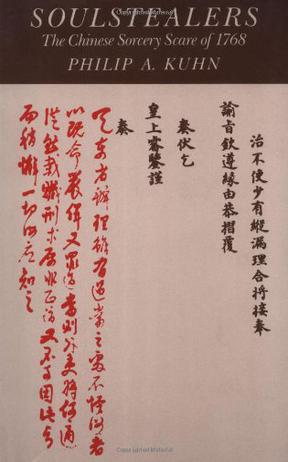-

Postcards from Tomorrow Square
Since December 2006, The Atlantic Monthly's James Fallows has been writing some of the most discerning accounts of the economic and political transformation occuring in China. The twelve essays collected here cover a wide range of topics: from visionary tycoons and TV-battling entrepreneurs to environmental pollution and how China subsidizes our economy. Fallows expertly and lucidly explains the economic, political, social and cultural forces at work turning China into a world superpower at breaknech speed. This eye-opening and cautionary account is essential reading for all concerned not only with China's but America's future role in the world. "One hundred years from now, when the West is looking at why China is where it is, historians will read Fallows." --- Dan Harris, China Law Blog -

The Search for Modern China
In this Second Edition of his widely acclaimed history of modern China, Jonathan Spence achieves a fine blend of narrative richness and efficiency. The text is tighter throughout and up-to-date on the most important scholarship in the field. The new discussions in this thorough revision include the extension of imperial power into central Asia by the eighteenth-century emperors, women's literacy and education in the Qing, the early development of Chinese nationalism, the roots of Chinese communism and alternatives to Mao, the early stages of the Great Leap Forward and of the Cultural Revolution. There is a new chapter at the end of the book on economic, cultural, and political developments since 1989. Praised as "a miracle of readability and scholarly authority," (Jonathan Mirsky) The Search for Modern China offers students a matchless introduction to China's history. 点击链接进入中文版: 追寻现代中国:1600-1912年的中国历史 -

The Rise of Modern China
-

When China Rules the World
How China's ascendance as an economic superpower will alter the cultural, political, social, and ethnic balance of global power in the twenty-first century, unseating the West and in the process creating a whole new world According to even the most conservative estimates, China will overtake the United States as the world's largest economy by 2027 and will ascend to the position of world economic leader by 2050. But the full repercussions of China's ascendancy-for itself and the rest of the globe-have been surprisingly little explained or understood. In this far-reaching and original investigation, Martin Jacques offers provocative answers to some of the most pressing questions about China's growing place on the world stage. Martin Jacques reveals, by elaborating on three historical truths, how China will seek to shape the world in its own image. The Chinese have a rich and long history as a civilization-state. Under the tributary system, outlying states paid tribute to the Middle Kingdom. Ninety-four percent of the population still believes they are one race-"Han Chinese." The strong sense of superiority rooted in China's history promises to resurface in twenty-first century China and in the process strengthen and further unify the country. A culturally self-confident Asian giant with a billion-plus population, China will likely resist globalization as we know it. This exceptionalism will have powerful ramifications for the rest of the world and the United States in particular. As China is already emerging as the new center of the East Asian economy, the mantle of economic and, therefore, cultural relevance will in our lifetimes begin to pass from Manhattan and Paris to cities like Beijing and Shanghai. It is the American relationship with and attitude toward China, Jacques argues, that will determine whether the twenty-first century will be relatively peaceful or fraught with tension, instability, and danger. When China Rules the World is the first book to fully conceive of and explain the upheaval that China's ascendance will cause and the realigned global power structure it will create. -

Soulstealers
Midway through the reign of Ch'ien-lung emperor, Hungli, mass hysteria broke out. It was feared that sorcerers were roaming the land clipping off the ends of men's queues (braids worn by royal decree) and chanting magical incantations over them in order to steal the souls of their owners. In this book, Kuhn chronicles this epidemic of fear and the official prosecution of soulstealers that ensued, so opening up a window on 18th-century China. The book raises questions not just about China, but also about past human behaviour in general and it demonstates how in any society, a provincial panic can become a national witch-hunt. -

Mr. China